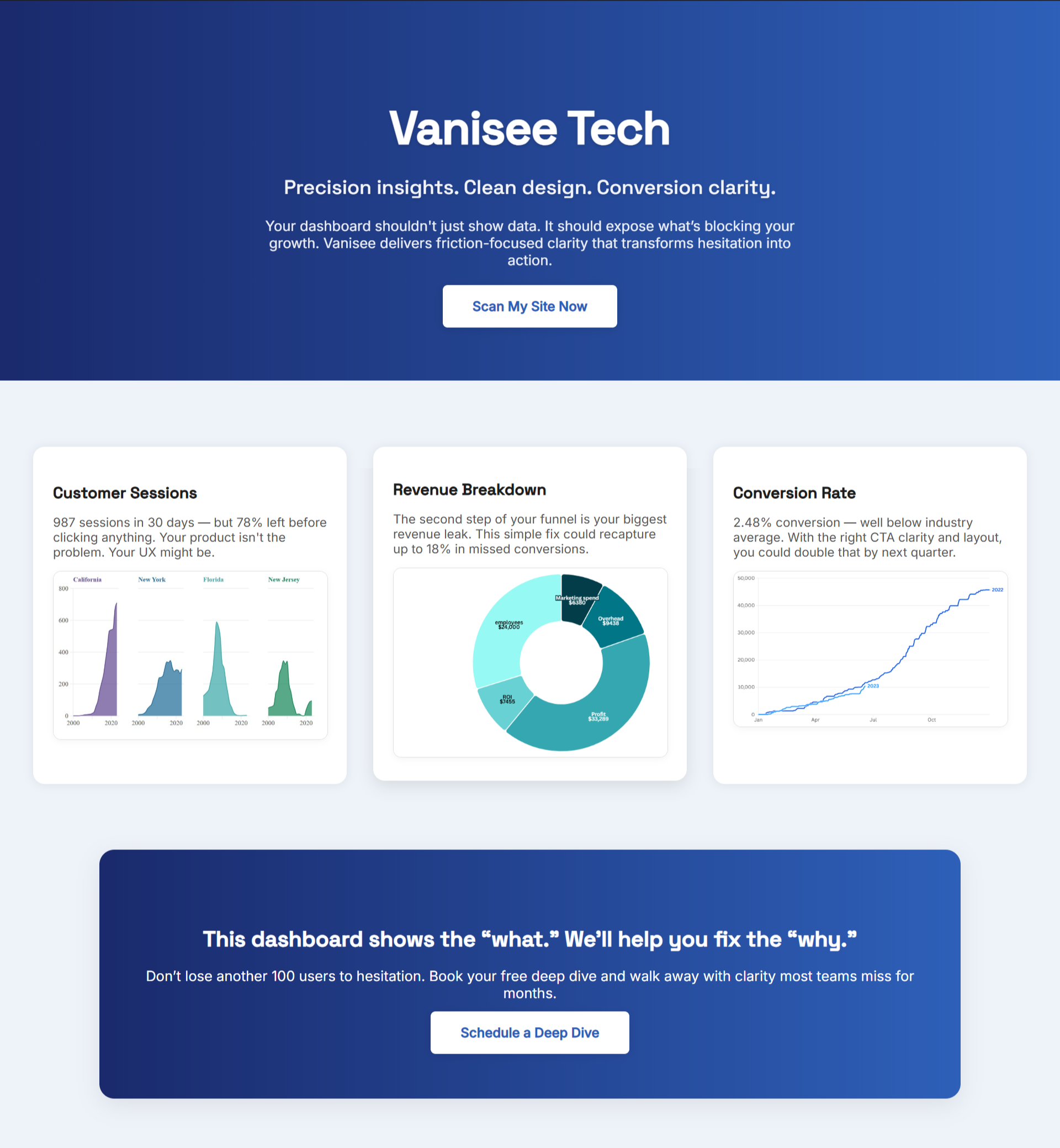Every founder has heard the same pitch from B2B SEO services: more rankings, more traffic, more growth. On the surface, it sounds like the fix your business has been missing. But if you’ve ever paid for SEO, you know the truth is rarely that clean. Agencies promise visibility, yet your pipeline doesn’t always feel fuller. Reports look impressive, yet sales stay flat. The disconnect comes down to what these services actually optimize for and what they ignore.
SEO agencies are good at one thing: making sure you show up in search. They can increase impressions, attract backlinks, and help you climb the rankings. But showing up doesn’t guarantee revenue. The real test is what happens after a visitor clicks. Without visibility into that stage, you might be buying page-one placement only to lose the very traffic you fought to win.
As we pointed out in Why the Best Marketing Agency Might Be Hurting You, marketing partners can deliver strong metrics while your bottom line stays untouched. SEO is no exception.
The Hidden Gap in B2B SEO Promises
SEO services sell you traffic. More visitors, more impressions, more keywords. But impressions don’t pay salaries, and traffic doesn’t close deals. That’s where most B2B SEO services quietly underdeliver: they optimize for clicks instead of conversions.
It’s not that agencies are lying. They’re simply measuring success in the wrong place. They count visits, not revenue. They celebrate higher rankings, not higher close rates. And when you question the results, they show you charts that look like growth even if your sales team can’t feel it.
In The Overlooked Cost of Affordable WordPress Website Design (and How to Avoid It), we explained how poor on-page clarity destroys conversions. The same principle applies here: SEO agencies can get people in the door, but if the house isn’t built to sell, the traffic is wasted.
Why B2B SEO Metrics Can Mislead You
Metrics like keyword growth, domain authority, and bounce rate all look impressive on reports. But they don’t tell you if visitors understand your value in the first 5 seconds. They don’t reveal if your forms are being skipped or if your calls to action are invisible.
That missing context is why SEO services can feel like a treadmill: you pay for months of optimization, but leads don’t accelerate. What you see is surface-level success. What you don’t see are the leaks in your funnel that make all that visibility underperform.

The Real Reason B2B SEO Efforts Stall
SEO agencies can control how people find you. They cannot control what people do once they arrive. That part — the user experience — is on your site. And in most B2B funnels, that’s where revenue dies quietly.
Confusing layouts, generic headlines, or slow load times all compound into hesitation. And hesitation kills momentum. Visitors who don’t get immediate clarity don’t become leads, no matter how strong your rankings are.
As covered in Why Your Google Ads Specialist Should Be the Most Strategic Hire You Make This Year (Why Your Google Ads Specialist Should Be the Most Strategic Hire You Make This Year), channel specialists need post-click visibility to succeed. Without it, even the best traffic source underperforms.
BluePing: The First UX Intelligence Engine for B2B Growth
This is where BluePing changes the equation. SEO agencies can tell you how many people landed on your site. BluePing shows you why they didn’t convert. It scans your live pages, flags the friction points that derail visitors, and translates them into actionable insights.
Instead of guessing why your SEO traffic isn’t turning into deals, you get clarity. Instead of paying for page-one placement while revenue lags, you finally see the invisible barriers standing between rankings and results.
B2B SEO services can open the door. BluePing makes sure the right people walk through it.
Do not let another campaign overpromise while your site quietly underdelivers. In less than 60 seconds, you can enter your URL and join the hundreds of founders waiting to get their hands on the first UX Intelligence tool built to turn visibility into revenue.





